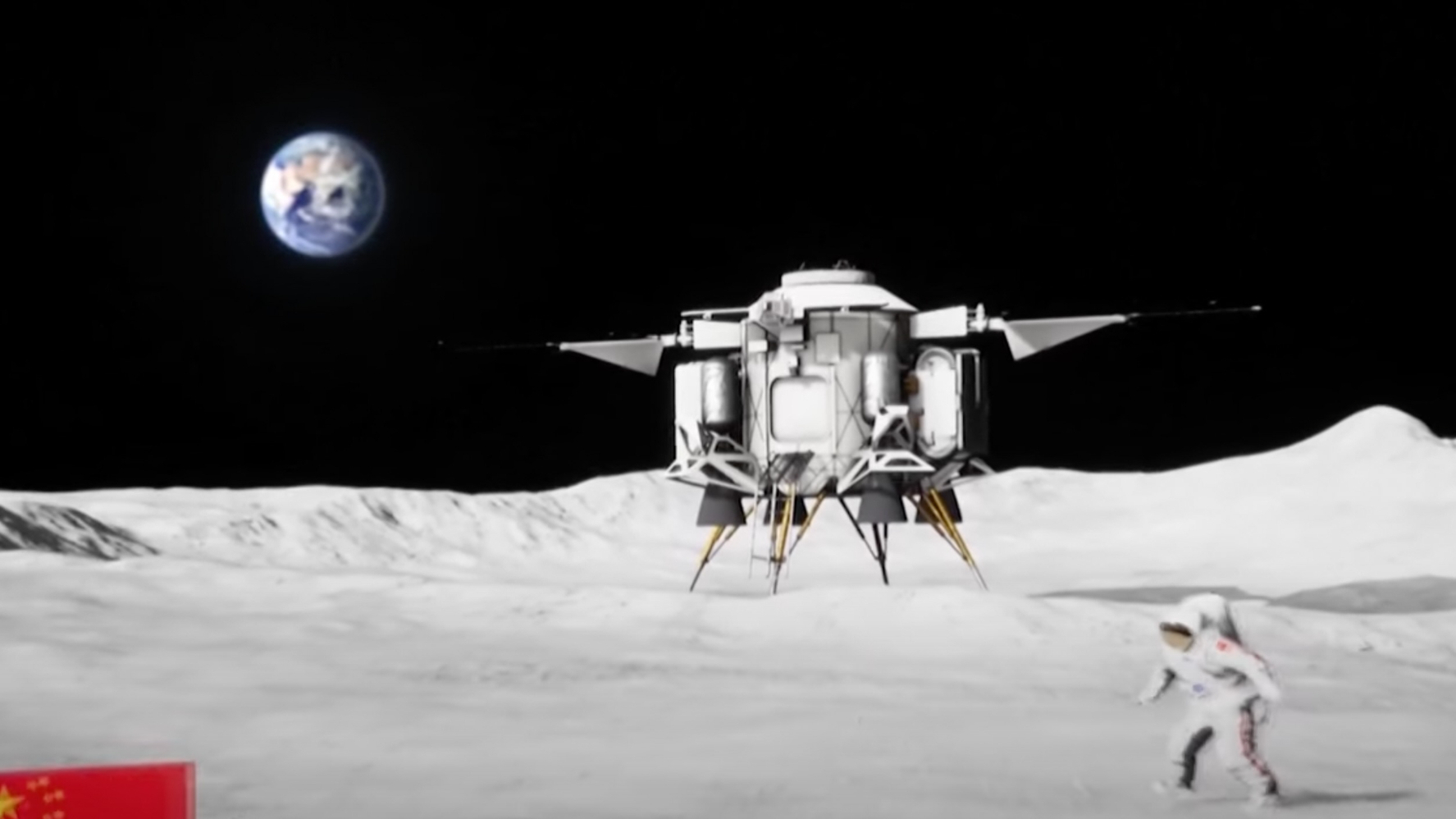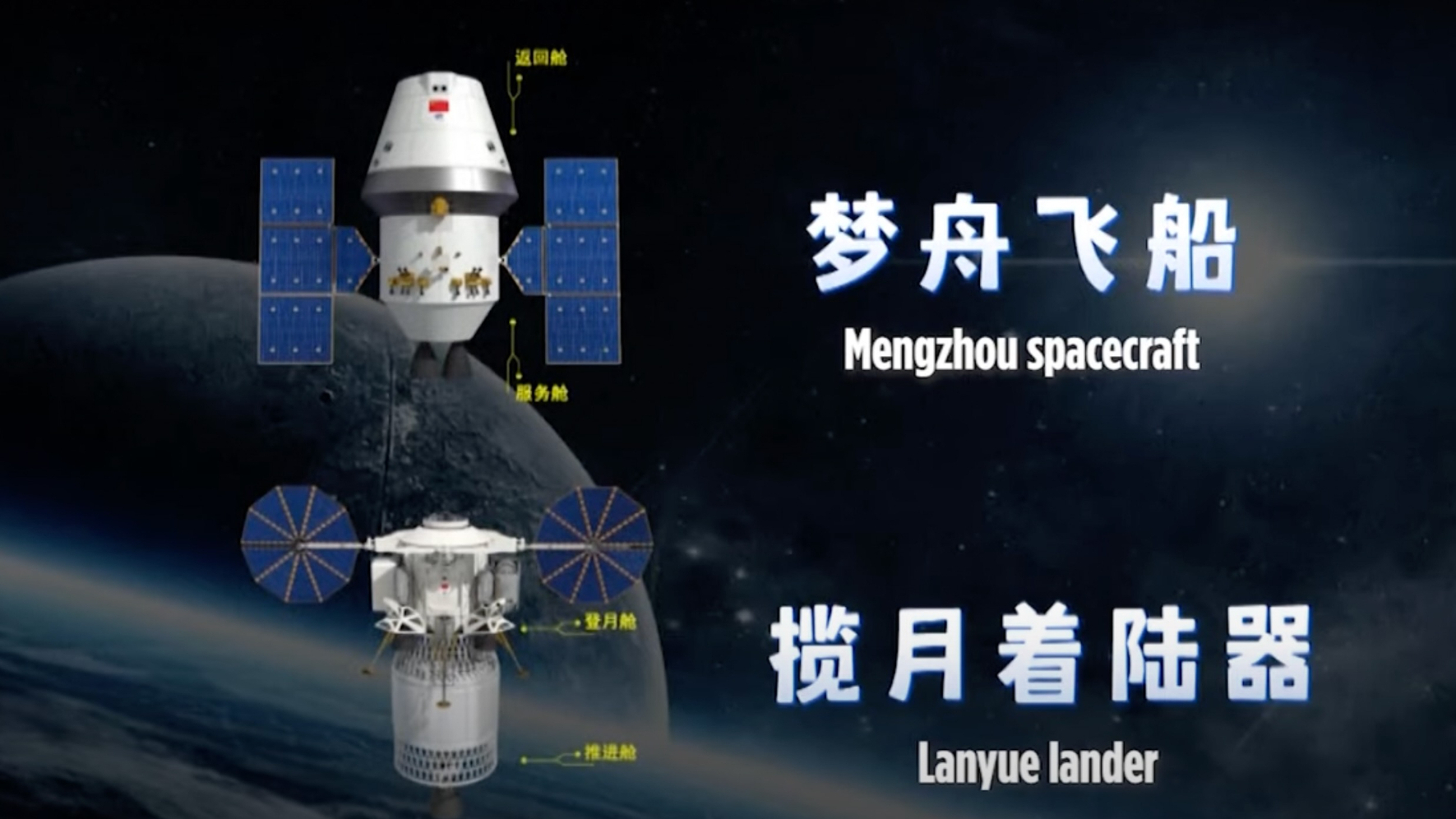
China's human spaceflight agency has given names to spacecraft being developed to put astronauts on the moon.
Mengzhou is the name for the spacecraft that will take astronauts beyond low Earth orbit, while the lunar lander has been named Lanyue.
Lanyue means "Embracing the Moon," referencing the Tang dynasty poet Li Bai. China's human spaceflight Agency, CMSA, said in a press statement that the chosen name appears in a Mao Zedong poem. Mengzhou, meanwhile, means "Dream Vessel" and fits into the naming style for China's Shenzhou and Tianzhou spacecraft, which currently fly astronauts and cargo, respectively, to the Tiangong space station in low Earth orbit (LEO).
Related: Not just Artemis: China and Russia plan to put boots on the moon, too

CMSA opened a public contest to help name the spacecraft back in August 2023. The agency said it received 2,000 submissions from organizations and people from all walks of life. The final names were selected by an expert panel.
Mengzhou was formerly known by the placeholder term "next-generation crewed spacecraft." It will have a variant for LEO that can carry seven astronauts, while the moon version — Mengzhou — will transport three astronauts into lunar orbit. China conducted a boilerplate test flight of the spacecraft in 2020 and a full debut flight is expected around 2027.
The China Aerospace Science and Technology Corporation (CASC), the country's state-owned main space contractor, is designing and building the spacecraft and lander. CASC is also building a new rocket, the Long March 10, to launch the new spacecraft.
China's moon landing plan involves the launch of two Long March 10 rockets, which will be based on the current Long March 5. One Long March 10 will carry Mengzhou, while the other launches Lanyue. The two spacecraft will then rendezvous and dock in lunar orbit.
A pair of astronauts will then move over to the lander and then head down to the lunar surface, while a third astronaut stays aboard Mengzhou. Lanyue will use a separate propulsion stage for the descent and landing on the moon. It will also carry a 440-pound (200 kilograms) crew rover. Lanyue will launch the astronauts back into lunar orbit after a brief stay on the lunar surface. The two spacecraft will then rendezvous and dock once more in preparation for the astronauts' voyage back to Earth.

Work on the various hardware for the mission is progressing well, Ji Qiming, assistant to director of CMSA, told China Central Television (CCTV).
"For now, the development of primary spacecrafts such as the Long March 10 rocket, Mengzhou crew spacecraft, Lanyue lander and spacesuits are finished. The overall technical proposal for the launching site and landing site is also completed," Ji said.
"Plans on lunar science payloads and crew lunar rover have been under formulation in terms of scientific research and application system as well as a lunar activity support system. The setting up of various newly built facilities and equipment for test launch in Wenchang Spacecraft Launch Site will start later."
Models of the rocket, spacecraft and lander were recently put on display at an exhibition in Shanghai.






